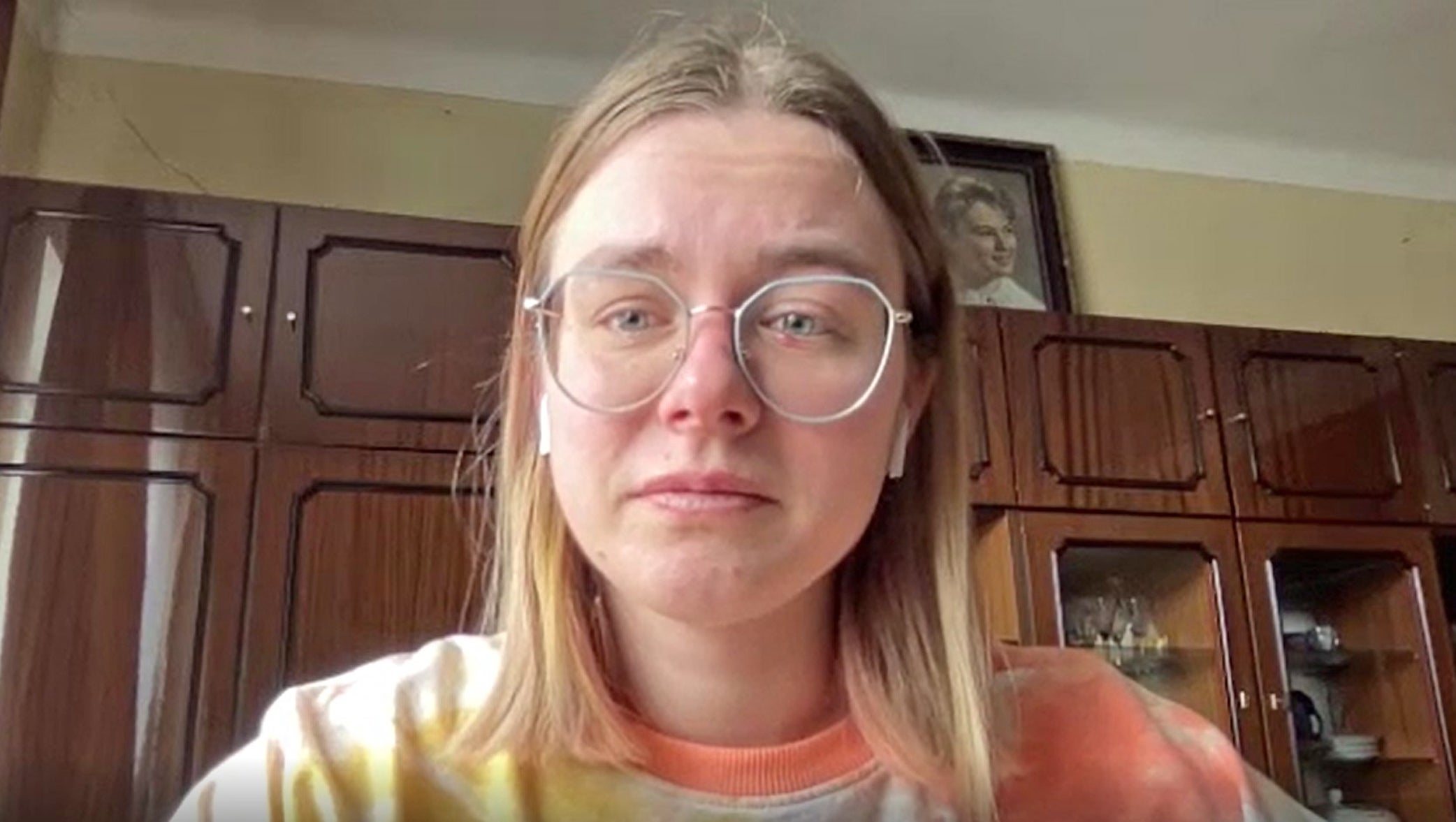Ukrainian who fled Mariupol sees home shelled just days after parents escape
Mariia Moskalenko said: ‘It’s so hard to believe this is happening… the Russians are destroying everything.’

Your support helps us to tell the story
From reproductive rights to climate change to Big Tech, The Independent is on the ground when the story is developing. Whether it's investigating the financials of Elon Musk's pro-Trump PAC or producing our latest documentary, 'The A Word', which shines a light on the American women fighting for reproductive rights, we know how important it is to parse out the facts from the messaging.
At such a critical moment in US history, we need reporters on the ground. Your donation allows us to keep sending journalists to speak to both sides of the story.
The Independent is trusted by Americans across the entire political spectrum. And unlike many other quality news outlets, we choose not to lock Americans out of our reporting and analysis with paywalls. We believe quality journalism should be available to everyone, paid for by those who can afford it.
Your support makes all the difference.A Ukrainian has spoken about the “horror” of seeing photographs online of her family home destroyed by Russian bombing days after her parents fled the city of Mariupol.
Mariia Moskalenko, 28, had been regularly checking a local news channel for updates of her neighbourhood and was “shocked” to discover her parents’ building had been destroyed.
“It’s so hard to believe this is happening… the Russians are destroying everything,” she told the PA news agency.
“Before the invasion Mariupol was a very beautiful place.
“There had been a change in local government and a lot of money had been put into the city to build new parks, new schools and stuff like that.
“It’s our taxes you know, my money which I worked hard for and which was used to build those houses, those roads, those parks – and now they are all destroyed.”
Ms Moskalenko escaped the city with her 16-year-old brother on March 3 and had been anxiously waiting for news of her parents after failing to convince them to leave their home.
Her 50-year-old mother and 55-year-old father eventually left Mariupol on March 17 after being ordered to evacuate by Ukrainian soldiers.
“They were just so shocked and my father hadn’t wanted to leave,” Ms Moskalenko said.
“When I first talked to him, he told me he would return to Mariupol and it was really scary because I thought he might.
“But after a few days, when he had slept without the constant sound of bombs exploding over him, he realised it is not a good idea.
“I think it is psychological, like a coping mechanism… a lot of men have been saying this when they escape.”
Ms Moskalenko is still in Ukraine and has been living in a safe house with her younger brother, but she could not say where for safety reasons.
She said the priority for her family now is to find somewhere to relocate to but she has ongoing concerns about safety.
“It’s a challenge – where to try and think of where to settle down, or at least where to go for now,” she said.
“Because actually, I’m thinking that moving to Europe may not even be safe enough.
“If Europe will not do anything to conquer Russia then why would the Russians stop if they take over Ukraine?
“Now I’m thinking about (moving to) Australia.”
It's our taxes you know, my money which I worked hard for and which was used to build those houses, those roads, those parks - and now they are all destroyed
Conditions are brutal for those still in Mariupol with electricity, water and food supplies cut off along with communication with the outside world.
Russian President Vladimir Putin’s forces are increasingly concentrating their air power and artillery on the city and the civilians living there.
However, Ms Moskalenko said that despite this many of her friends have remained in her hometown to fight.
“They just don’t want to lose their home and I understand that, I feel it,” she said.
“I know a lot of people who are still fighting on different fronts, as soldiers, territory defenders, as volunteers, journalists and so on.
“I still don’t want to leave Ukraine because I don’t want to even believe that we will lose.
“And I think we will keep going because we don’t want to lose our home, our community, our connection to what we have.”